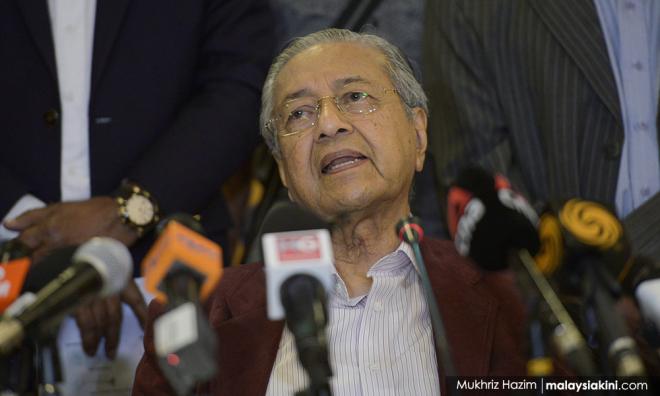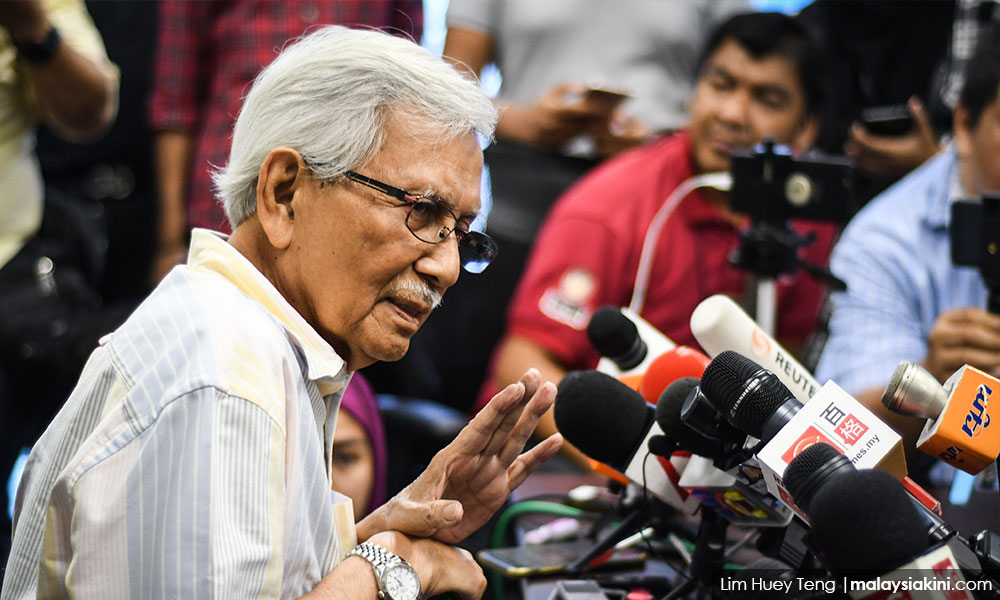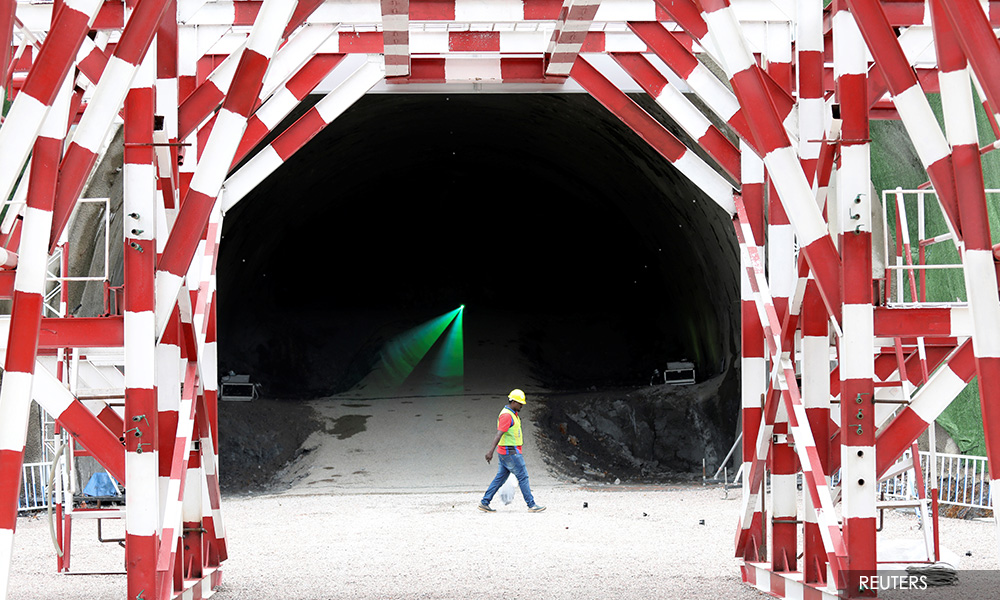
QUESTION TIME | On May 11, last year, barely two days after Pakatan Harapan won GE14, the first two things that Prime Minister Dr Mahathir Mohamad (above), installed just the day before, announced were a much-abbreviated cabinet list, which included just three others besides him, and the Council of Eminent Persons (CEP) under Daim Zainuddin.
The other members of the CEP were tycoon Robert Kuok, former Bank Negara Malaysia governor Zeti Akhtar Aziz, former Petronas CEO Hassan Merican and prominent economist Jomo Kwame Sundaram.
The appointment of Daim to head this powerful council shocked, not least because it was done even before the appointment of the full cabinet, but because it marked the return of a close controversial associate, old friend and henchman of Mahathir into the top echelons of decision making, even though he had no public mandate.
Mahathir rode roughshod over the opposition to Daim to that important and powerful position which went far above just recommendations, but took almost the force of law. Daim usurped the functions of many ministries. He and the CEP became the source from which economic and corporate policy emanated. Ironically, the CEP report remains classified secret under the Official Secrets Act, only accessible to the PM.
Daim (below) and his associates (which later included Dr Muhammad Abdul Khalid, the brother of Daim’s second wife Naimah Khalid, who became the country’s new economic adviser in August 2018) apparently interrogated many leaders of government-linked companies and investment companies (GLCs, GLICs). Stories are still told how some corporate leaders, in tears, appealed to Daim to retain their jobs.

Apart from the resignation in June 2018 of Bank Negara governor, Muhammad Ibrahim, the most prominent case of this was when Daim was alleged to have forced the country’s two top judges, Chief Justice Md Raus Sharif and Court of Appeal president Justice Zulkefli Ahmad Makinudin to resign too.
In June 2018 too, Wahid Omar resigned as chairman of Permodalan Nasional Bhd (PNB) to be replaced by Zeti. In August the same year, Abdul Rahman Ahmad moved to the Sime Darby board from CEO of PNB. He was replaced by Invesco Ltd Singapore investment director Jalil Rasheed. Abdul Rahman is now chairman of Sime Darby, a more ceremonial position compared to his hands-on position as PNB CEO.
In August 2018 the entire Khazanah Nasional Bhd board resigned after Mahathir refused to grant a meeting with Khazanah’s CEO Azman Mokhtar, giving Mahathir carte blanche to select a new board and CEO. The Employees Provident Fund CEO Shahril Ridza Ridzuan moved over to Khazanah, and his deputy at EPF, Tunku Alizakri Alias took over as EPF CEO.
There was also a slew of changes at places like Felda, FGV, Lembaga Tabung Angkatan Tentera and Tabung Haji, with extensive shifts and moves at the top. These moves are in addition to the shifting of departments to ministries which are headed by those considered sympathetic and aligned to Mahathir.
Basically, the whole face of GLCs and GLICs had changed in just three months since the change of power, indicating clearly where Mahathir’s priorities lay.
Two things may have motivated these moves. One, to replace those who may have transgressed established corporate principles of governance or the law to line their own pockets, with those who would potentially have better standards.
The other is less savoury - it may have to do with putting people in the corridors of power over multiple valuable assets who may not have much emotional attachment to selling them and set the stage for a transfer of at least some valuable assets to those who may be sympathetic to the current power bearers who are, without a doubt, Mahathir and Daim, the two people who have considerable influence in the economy, business and corporate happenings of the country.

In fact, Daim, even after the 100-day expiry of the CEP, plays a major role in what should be handled by the ministries, such as the renegotiation of the RM44 billion East Coast Rail Link (ECRL) project, as well as the RM10 billion pipeline project, both with China companies.
Sources say Daim is also deeply involved in matters related to 1MDB, which is owned by the Minister of Finance Inc. He also plays a role in settling disputes relating to other projects such as the huge condominium project in the Bukit Kiara park area which is vehemently opposed by residents there.
In fact, corporate observers say there is no major government project in Malaysia which escapes the scrutiny of Daim, and hence Mahathir, all of which shows that Mahathir has not only an iron grip in all matters related to the government, but to pretty much most of corporate Malaysia as well.
Already we have four bids on the table for one of Khazanah’s most valuable assets, PLUS, all of which appear to have been rejected by Khazanah, which has not stopped the offers coming in. Wonder what other assets will come up for sale next.
P GUNASEGARAM, editor-in-chief of Focus Malaysia, says that restructuring society must begin with moves towards narrowing income gaps, not the redistribution of wealth already created. - Mkini



No comments:
Post a Comment
Note: Only a member of this blog may post a comment.